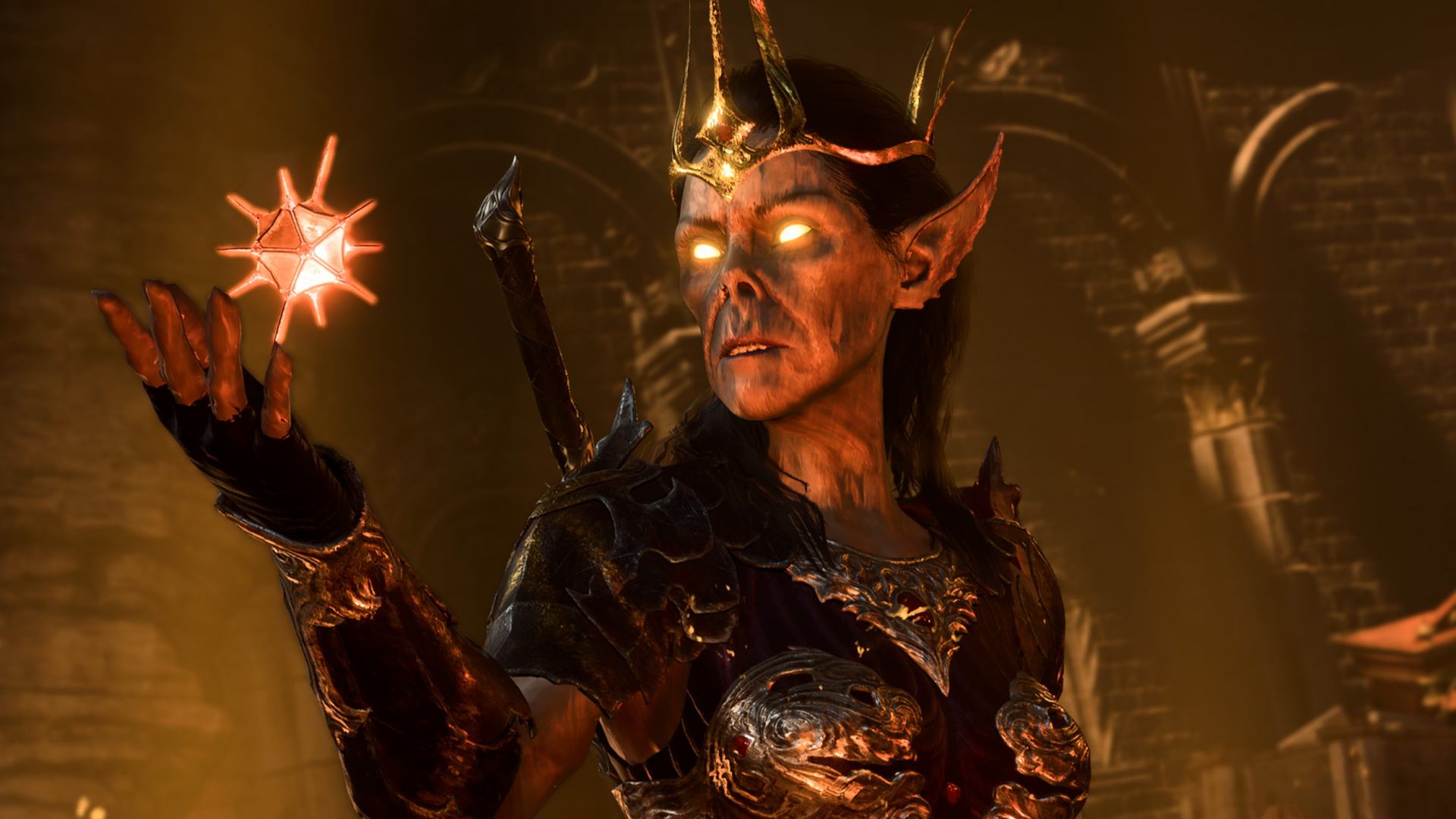
The socket stares back at me, empty. I found my way to this part of Baldur's Gate 3 almost by accident, a combination of a fight gone wrong, an ingenious solution to a puzzle, and a couple of disarmed traps leading me to a legendary weapon that's the perfect fit for my cleric. After all that, I'm not going back empty-handed, but I've got no idea what fits in the socket. So, like any sensible D&D player, I try my luck. Figuring that there's no way the game is about to let me get away with this, I instruct my light-fingered rogue to try and yank the weapon free. In an instant, I'm sealed in a magical cage with sirens blaring and a doomsday device pointed squarely at my head.
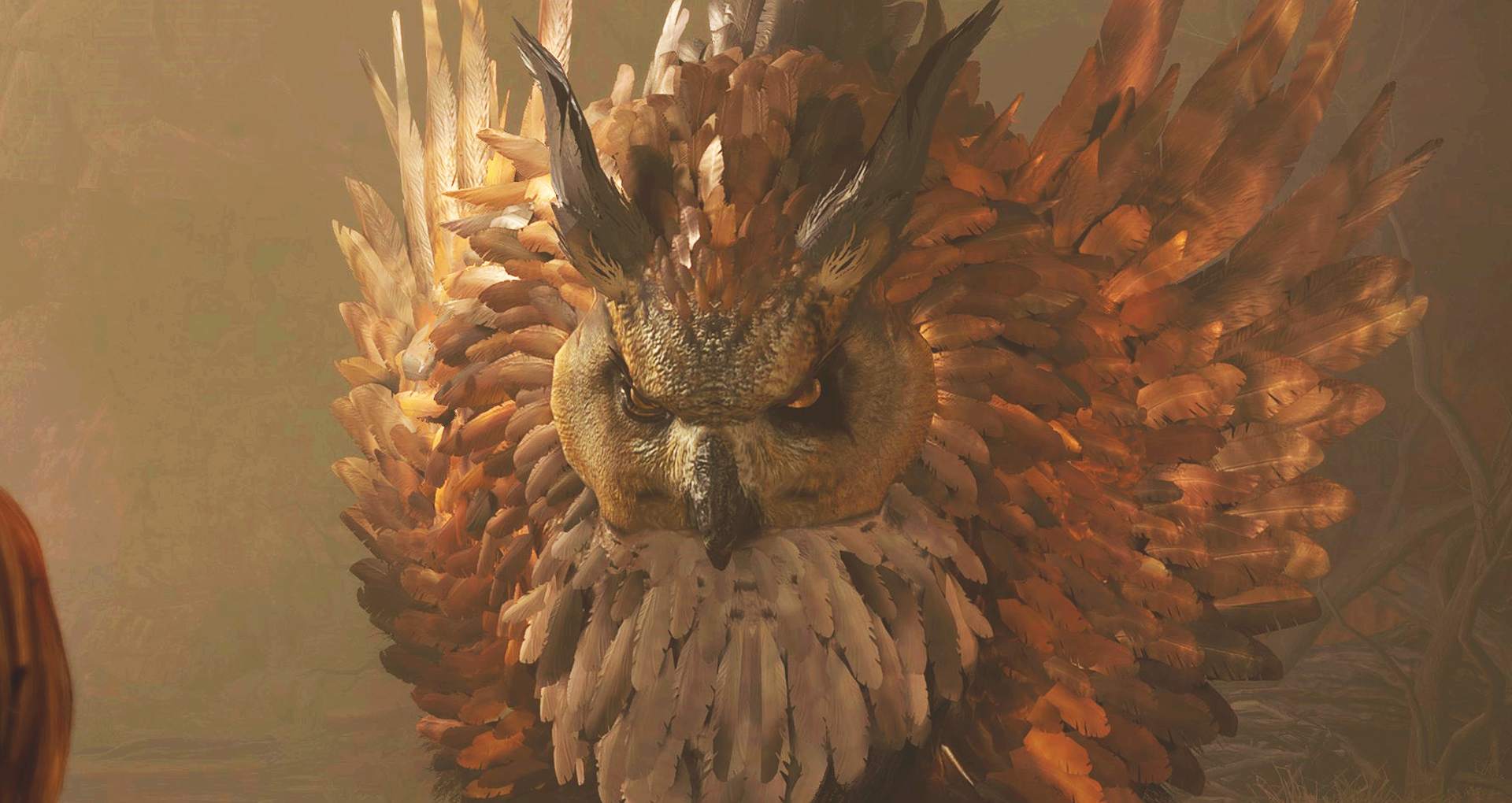
Release date: August 3, 2023
Platform(s): PC (PS5 coming September 6, 2023)
Developer / Publisher: Larian Studios
In the interests of leaving something to the imagination, I won't outline my daring escape, but it's moments like that one that make Baldur's Gate 3 feel like a truly authentic D&D experience. They are the invisible hand of the Dungeon Master, where Larian gently pushes you away from the keyboard and reminds you that for all the control you have on this world, this is someone else's story too. Sometimes that reminder comes in the form of a massive, world-ending set piece, but much of the time it's much more subtle; a rousing speech, a heartfelt confession, an encounter so silly in a part of the world so out-of-the-way that you can't help but feel the humanity in every part of this game's creation. Baldur's Gate 3 feels so rare - a game that delivers not only on the D&D ruleset, but on the whole ideal of a roleplaying experience.
After 30 hours across various early access playthroughs and another 40 with the full release, it's the breadth, depth, and density of Baldur's Gate 3 that strikes me more than anything. It's a game where the critical path sometimes feels like little more than a suggestion, where a narrative thread you picked up hours ago might return in an entirely unexpected way, where a specific character might offer an entirely new way of seeing the world, or where a wrong turn might lead you down a narrative rabbit hole so deep that when you finally emerge you feel like you're almost literally stumbling back into the light.
Critical Roll
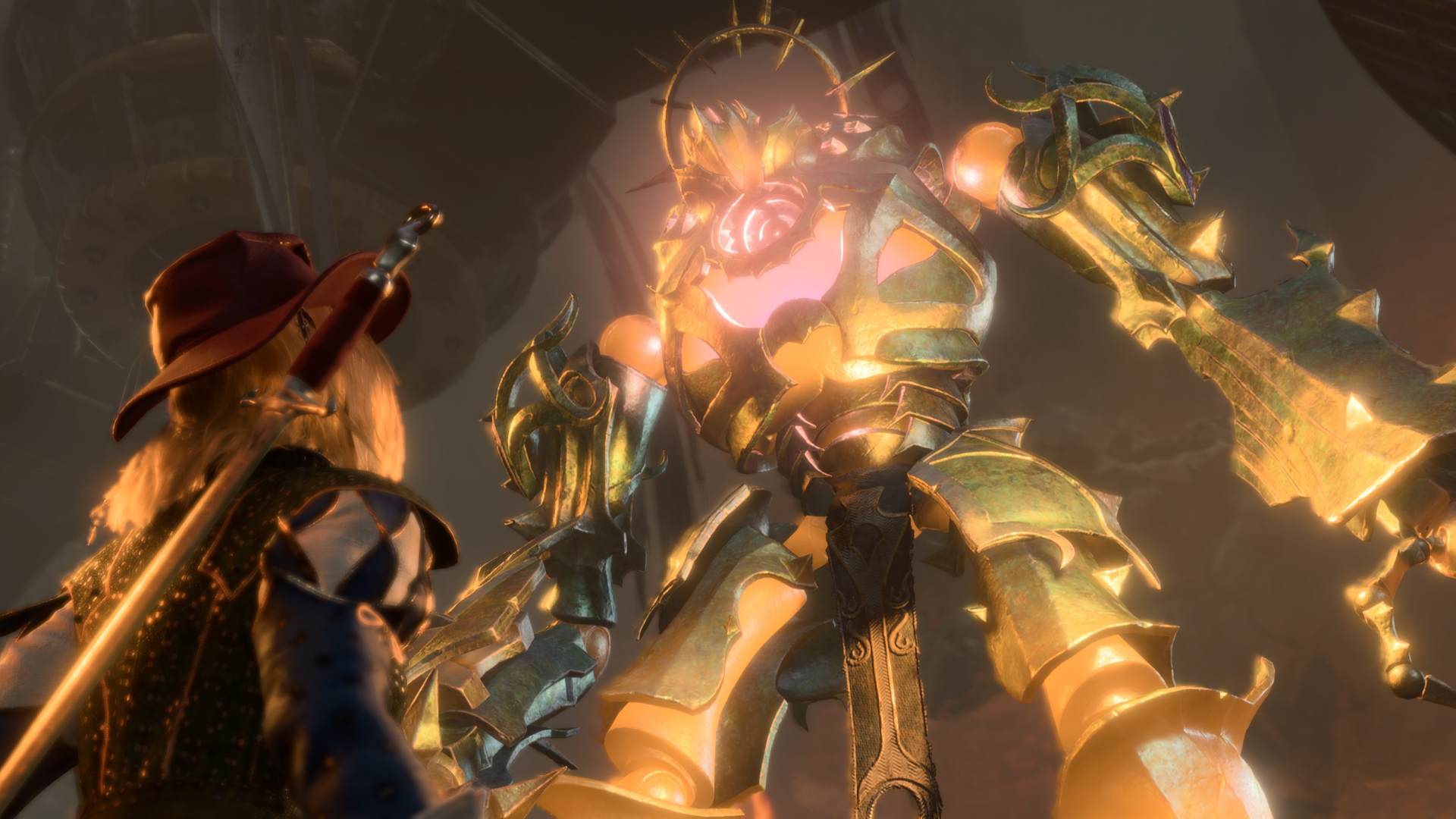
For all that a simplistic following of the critical path isn't integral to your enjoyment of Baldur's Gate 3's main quest, it can't be denied that the versatility of that story is a marvel. The number of ways in which the game's first act alone can reach its ending is hard to wrap your head around, and that diversity of approach carries forward. The narrative flexibility that offers is seriously impressive, a means by which you can seamlessly pivot your own story according to the whims of your own roleplaying experience. In offering that sense of branching freedom rather than binary choice, major players become products of their own world rather than archetypes to be clumsily wielded by the requirements of a more rigid story.
Where Larian chooses to tell you its own story, it does so so well that those moments feel lifted directly from a tabletop campaign. Sometimes they're massive combat arenas, or devilish puzzles. Just as often, they're opportunities for Baldur's Gate 3's cast to shine. Each of the game's six, core 'Origin' characters slot into the story as seamlessly as your own creation, taking the spotlight to build context into the world even when it might not relate to your own experience. My current highlight is Karlach, a barbarian; tricked into slavery, she spent a decade fighting in a pointless forever war before escaping prior to the events of the game. With no good guys and no winners, the very physical manifestation of Karlach's trauma might have made her gruff and nihilistic in another game, but Larian filled her with zest, humor, and a desire for life.
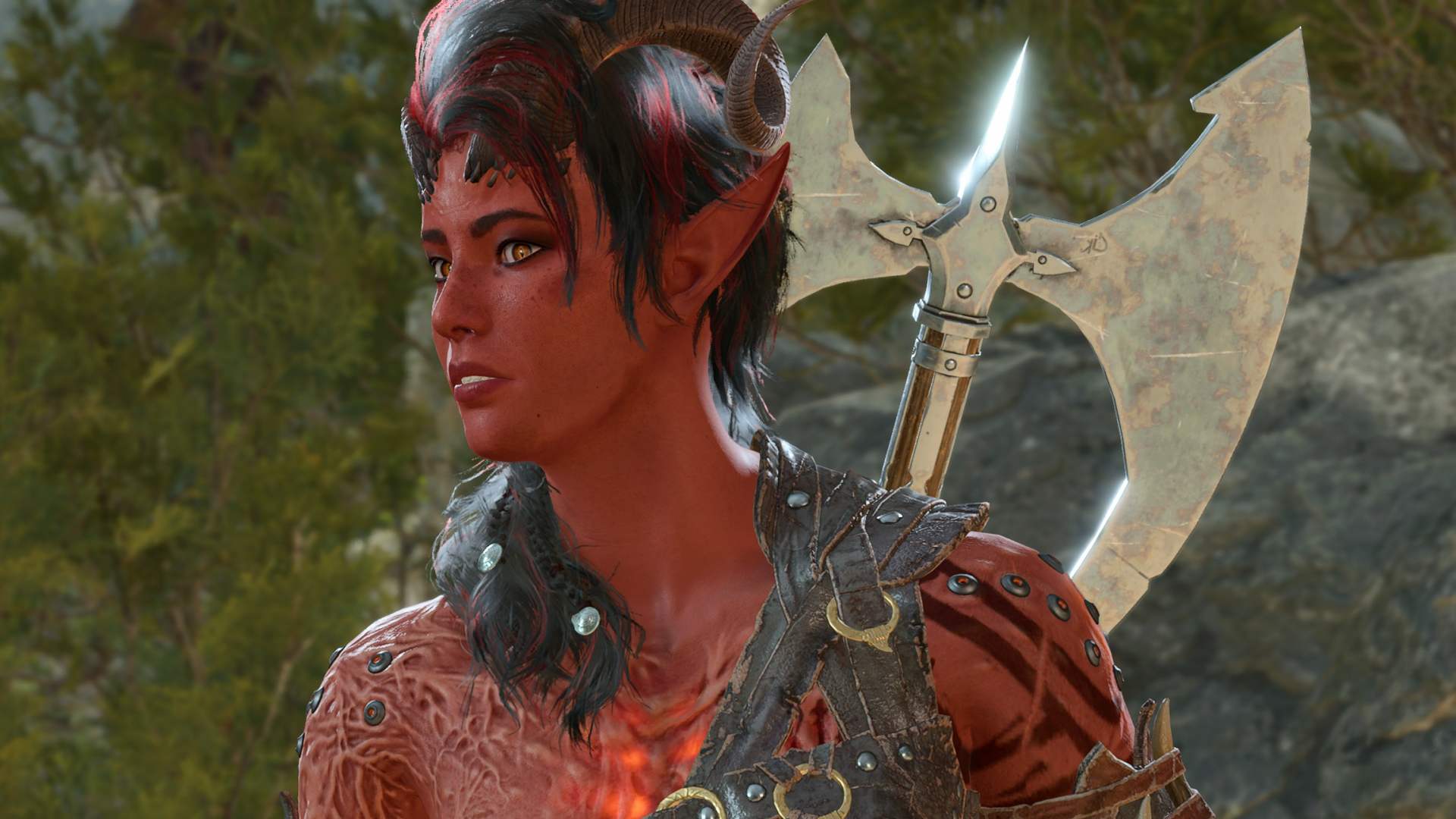
Baldur's Gate 3 treads the line of that kind of traditional archetype with finesse; clerics wield their radiant powers to serve a dark goddess; fanatical fighters are wracked with indecision about the object of their obsession; even my bard bucks the D&D trend by being silver-tongued, but rarely sleazy. I'm impressed with the characters themselves, although so far I'm finding the levelling curve a little underwhelming. That's a D&D problem rather than a Baldur's Gate 3 problem, but I wish I was getting a bit more out of each upgrade. The payoff is through an absolute glut of magic items which might frustrate tabletop purists, but I'm enjoying thanks to its versatility. So far, the highlight is my rogue, who has one build dedicated to pure stealth, but another set of gear that offers combat benefits based on the bonus lightning damage his bow deals. Dedicated builds definitely aren't a part of the tabletop game that I'm familiar with, but they certainly contribute a lot to the Baldur's Gate 3's video-gamification of the pen and paper game.
Too big to fail

As much as the breadth and depth of Baldur's Gate 3 are both an impressive part of its creation and in many ways key to its success, its size and scope have the potential to prove a stumbling block for some. D&D's combat is not inherently complex, and Baldur's Gate 3 does very good job of outlining the traditional 'movement-action-bonus action' loop of each character, but there's plenty of information that I found hard to parse even as a D&D player, particularly around equipped items. Perhaps that's an issue with the complexity of the tabletop game, but there are instances where Larian's been much more transparent - unlike D&D, a single button press lets me see the character sheet of everything in the game, making combat decisions a little easier to make.
The game's sheer size also means that if you're not careful, you're likely to miss a lot. With nobody capable of casting Find Familiar or Wild Shape in my party, I've missed out on whatever's hidden behind multiple cracks in multiple walls. With no druid or ranger, I can't use the Speak with Animals spell to gather information from keen-eyed critters. If you pay enough attention to the world, it's fascinating to spot how much Larian is prepared to let you miss - something as simple as taking a rest at the wrong moment might irreversibly move the story on, permanently barring you from entire swathes of narrative. From some perspectives, that's just another example of Baldur's Gate 3's authenticity, but for some it could easily prove a frustration.
That size also means that Baldur's Gate 3 needs a fast-travel feature, and I'm yet to be convinced by its inclusion. Present since early access, a series of magical portals are entirely optional, but act as an unfortunate 'get out of jail free' option, robbing some of those bigger moments of their weight. The alternative is trekking back through empty corridors or trying to fight your way home on your knees thanks to a tricky boss fight - neither option seems particularly desirable, but it remains a feature I'd prefer not to use.
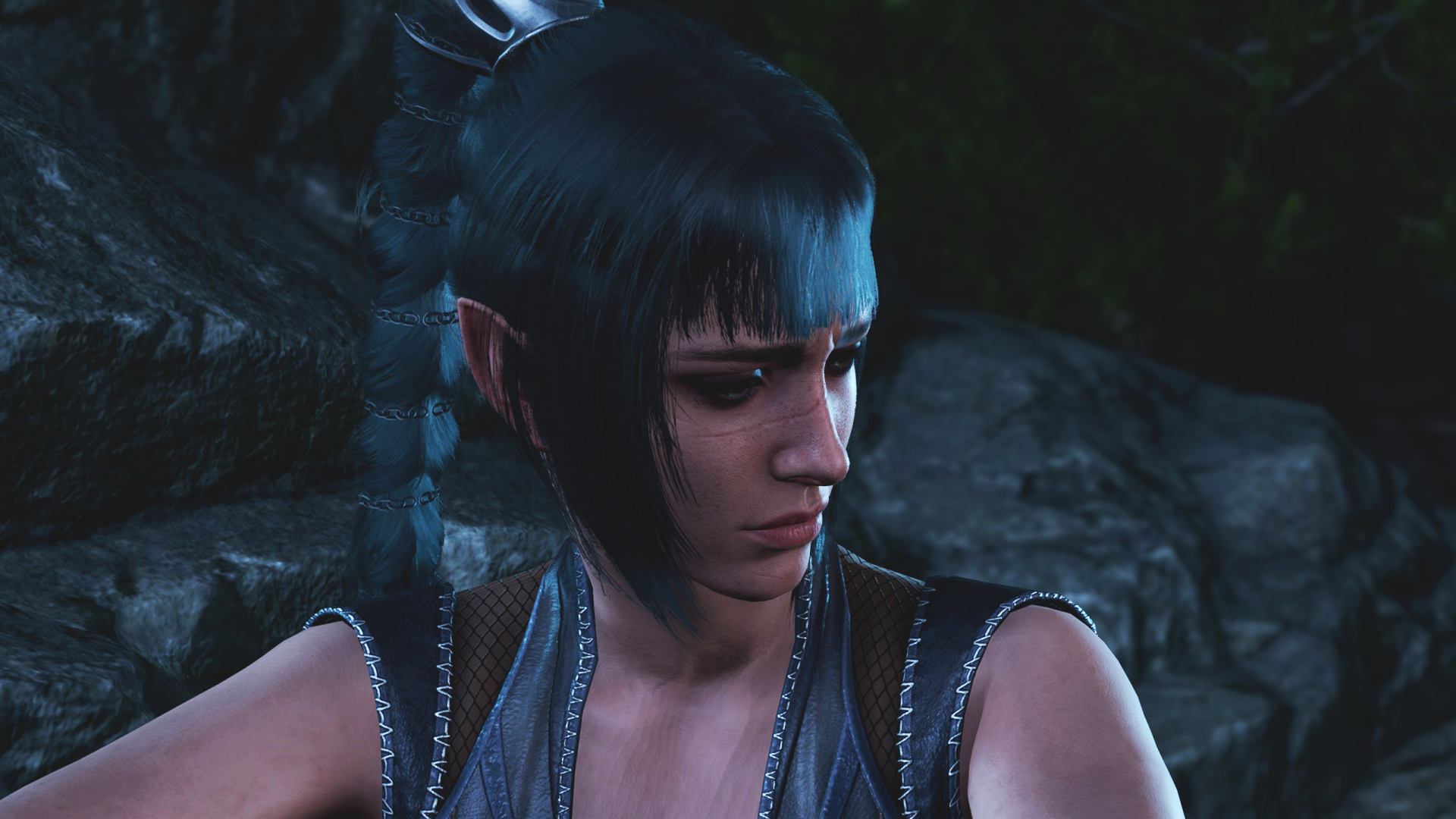
The game's scope means it's also currently proving difficult to level anything like a final verdict on Baldur's Gate 3. More than 30 hours in, and the titular city is still well over the horizon. Larian's teasing it, and not particularly gently - almost every other quest seems to end with a character who says that I should catch up with them when I make it to the city. That's a smart way of seeding what's to come, as well as gently outlining the fact that your actions (or inaction) will have consequences down the road.
For now, suffice to say that Baldur's Gate 3 feels a little bit like Larian has accomplished the impossible. This is an entire, years-long pen-and-paper roleplaying campaign realized in beautiful fidelity, in a way that brings every tiny detail of your mind's eye to life. It's a Witcher-style elevation of its source material, a game that lives and breathes its tabletop origins so deeply that to see it transfer them so completely from the page to the screen almost feels wrong. At a time when Dungeons & Dragons boasts a popularity almost unknown within its five-decade history, Baldur's Gate 3 feels primed to be held up with the best of the best, with the likes of Critical Role, Curse of Strahd, and the classic D&D CRPGs of the past; Icewind Dale, Neverwinter Nights, and, of course, with the original Baldur's Gate.







